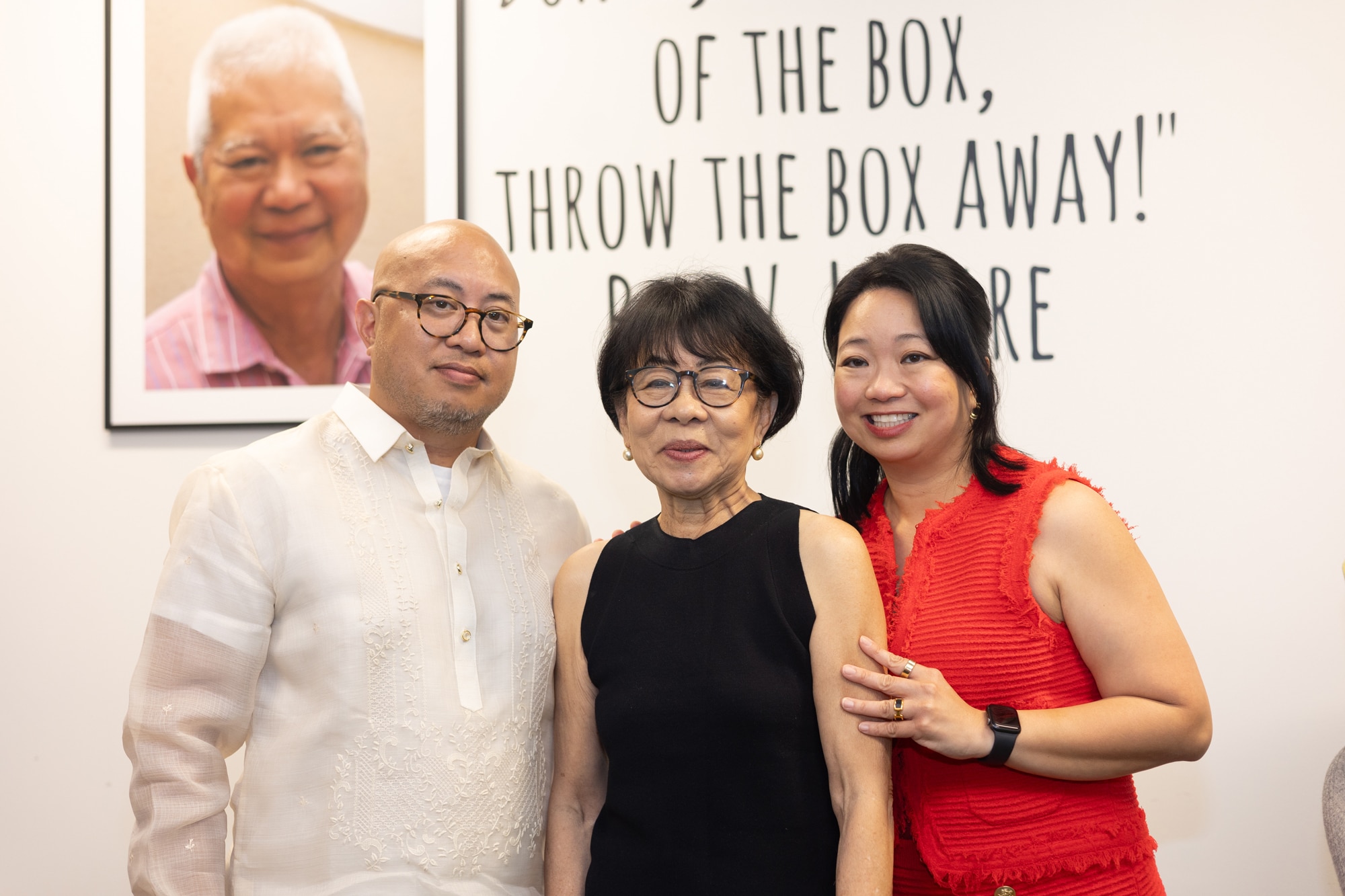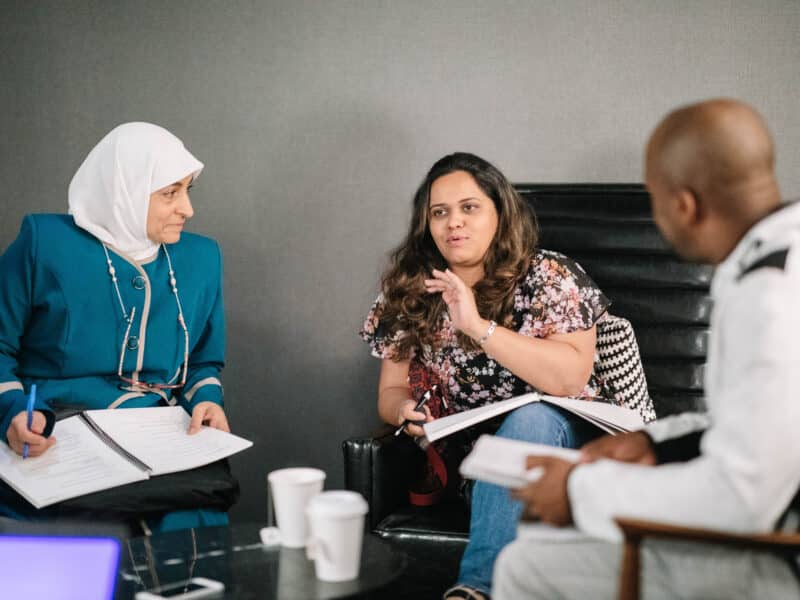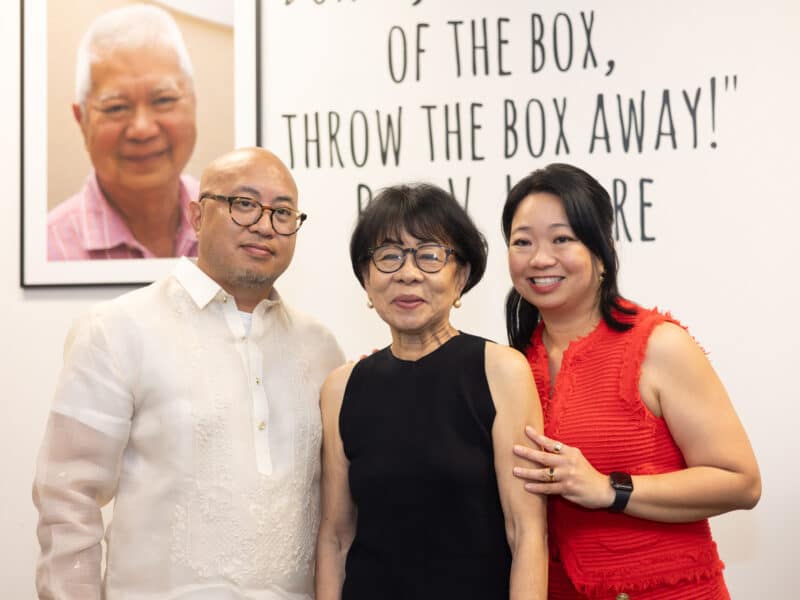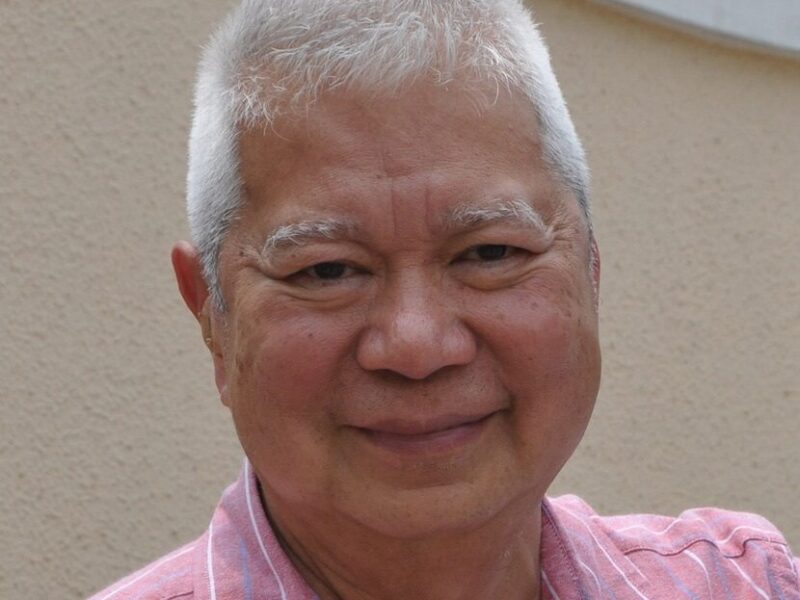They felt his absence, to be sure, but the facilitators of the Johns Hopkins Center for Communication Programs’ Leadership in Strategic Communication Workshop (LSCW) remained guided by the spirit of Benjamin Lozare, who shaped the event for more than three decades before his death in February after a battle with blood cancer.
Lozare had been the heart and soul of CCP’s LSCW workshop, a three-week, hands-on immersive program designed to hone the social and behavior change skills of participants from around the world.
Launched in the late 1980s, the workshop has more than 5,000 alumni in 100 countries around the world and include country presidents, ministers of health, USAID mission directors, and other leaders in government, public health, global development, medicine and communication.
This year’s workshop, which ended last week, was kicked off with a tribute to Lozare, who even since his retirement in 2017 had continued to attend some sessions and helped set its tone. CCP held a ceremony to name one of the rooms in its downtown Baltimore office for Lozare, emblazoning a wall with one of Lozare’s many memorable quotes about leadership: “Don’t just think out of the box, throw the box away!”
Held in Baltimore annually, the workshop, led by a distinguished faculty of public health, policy and development experts, has been described as a transformative experience. Working in teams, participants learn and experience all the steps in the process of developing a strategic communication intervention. Registration for the 2025 workshop is already available online.
This year, the group was split into four teams which tackled a variety of issues, from advocating for improved access for African Americans to mental health and addiction services in the city of Baltimore to using social media influencers to encourage young people from rural Georgia to change their eating habits to prevent heart disease to a concept designed to help people in Puerto Rico, where alcohol use disorders are prevalent, think about slowing consumption down and keeping alcohol away from children.
Cletus Ameh, a senior planning officer with the National Primary Health Care Development Agency in Nigeria, attended the workshop. Before, he says, a major gap in his skills was a lack of social and behavior change knowledge and experience.
Now, he says, he is looking forward to heading home where he can start putting what he learned to work on a nutrition project he works on that encourages pregnant women to take iron and folic acid supplements to improve the health of their babies.
“It’s been a very, very, very interesting journey. The facilitators are very thoughtful,” he says. “They are very focused, and they want the best, so they put in everything to make sure we understand these theories and how to apply them.”
The skills he has gained, he says, have been so valuable that he wants to sign up for the workshop again.
In recent years, CCP has conducted the workshop in a number of countries including Nigeria, India and the Philippines.
CCP’s Arzum Ciloglu, director of the workshop, along with CCP’s Andrea Anschel, says Lozare was never far from her mind over the course of the three weeks.
“This year, without Ben, we’ve carried on with the stories and traditions that he left us with,” Ciloglu says. “We speak of him fondly, and often. We want to ensure that future generations of LSCW alumni understand that the workshop was born from his vision and passion for serving people around the world.”
Says Anschel: “Everyone has been so engaged and we were able to pivot and work through our new normal. If anything, it’s a testament to how well Ben set this up.”
“And to how well he trained us,” Ciloglu says.





